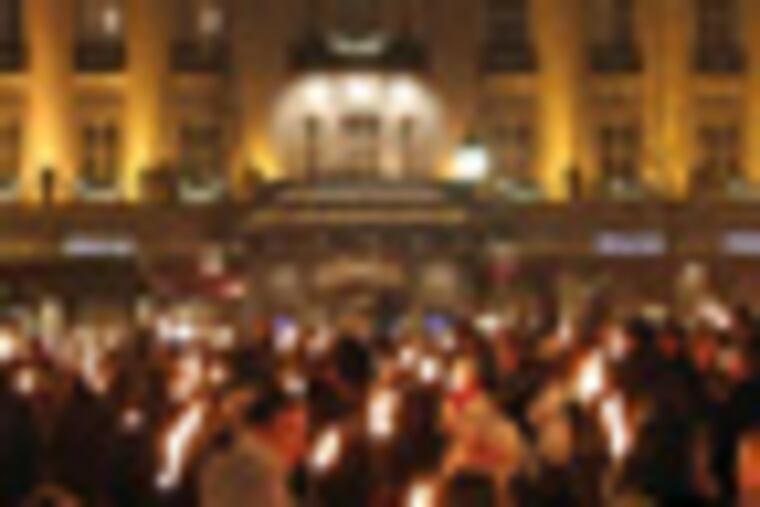Europe's leaders accept Nobel
OSLO, Norway - The European Union received the Nobel Peace Prize on Monday for promoting peace and human rights in Europe following the devastation of World War II, and the bloc was urged to use that unity in its battle with an economic crisis that is causing suffering for many of its citizens.

OSLO, Norway - The European Union received the Nobel Peace Prize on Monday for promoting peace and human rights in Europe following the devastation of World War II, and the bloc was urged to use that unity in its battle with an economic crisis that is causing suffering for many of its citizens.
About 20 European government leaders, including German Chancellor Angela Merkel, French President Francois Hollande, and Italian Premier Mario Monti, attended the ceremony in the capital of Norway, an oil-rich country that has twice rejected joining the EU.
Not everyone approved the decision to give the prize to the EU, created 60 years ago as Europe was struggling to recover from a war that killed millions.
Three Peace Prize laureates - South African Archbishop Desmond Tutu, Mairead Maguire of Northern Ireland, and Adolfo Perez Esquivel from Argentina - have demanded that the prize money of $1.2 million not be paid this year. They said the bloc contradicts the values associated with the prize because it relies on military force to ensure security.
Amnesty International said Monday that EU leaders should not "bask in the glow of the prize," warning that xenophobia and intolerance are now on the rise in the continent of 500 million people.
Prize committee Chairman Thorbjoern Jagland handed out the Nobel diplomas and medals to EU Commission President Jose Manuel Barroso, EU Council President Herman Van Rompuy, and president of the EU Parliament Martin Schulz before a ceremony in Oslo's City Hall attended by heads of state, royalty, and international dignitaries.
In his awarding speech, Jagland said the EU had been instrumental in turning "a continent of war" into one of peace.
"In this process the European Union has figured most prominently," he told an applauding gathering of several hundred people.
The prize comes against a backdrop of protests as the debt crisis for countries using the euro currency triggers tensions within the union, causing soaring unemployment and requiring massive austerity measures.
Barroso told the gathering that the EU, "which has overcome war and totalitarianism," will always stand by those in pursuit of peace and human dignity.